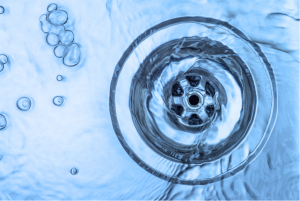Have you ever had to deal with a flooded basement or home? Hopefully the answer to that question is no, as this can be an awful experience for just about anyone. The good news is that there is an easy way to prevent this from occurring at all, with the installation of a sump pump.
A properly installed and serviced sump pump provides ample protection against floods and any resulting water damage, mold growth, or structural problems that might occur as a result. Keep reading to learn more about just how important your sump pump is, as well as how it functions.
How Does a Sump Pump Work?
A sump pump functions by allowing water from the outside perimeter of your home to be drained away by pipes, which empty into the sump pump’s pit. When the water within the pit reaches a certain level (float), the sump pump’s switch is activated and the pump diverts the water through a pipe, and then into a storm drain.
If a sump pump is absent from your home, then a main water burst or even a heavy rain can easily flood your basement or the first floor of your home. Your sump pump not only prevents this from occurring at all, it can remove water from a burst pipe within your living space.
Do You Need to Have Your Sump Pump Maintained?
Just like any other major plumbing appliance within your home, your sump pump may run into the occasional problem. For instance, either a clogged drainage pipe, a malfunctioning float, or a broken or dirty switch on the sump pump can result in water accumulation in the basement or ground floor of your home.
To prevent this from occurring, be sure to schedule routine maintenance annually on your sump pump to ensure that this appliance is doing its job, and doing it effectively. We also recommend that you have a backup pump installed and have it operated by battery should the first pump fail.
To schedule sump pump services in Dundee, IL, contact Lifeline Plumbing, Heating & Cooling today.


